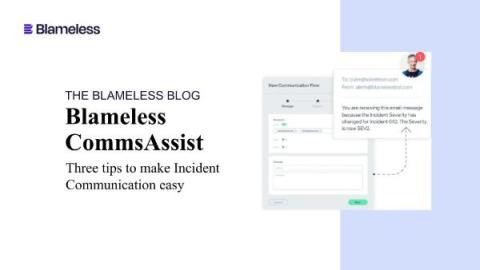Operations | Monitoring | ITSM | DevOps | Cloud
Latest News
The Pulse Of Technology: Why IT Monitoring Is Non-Negotiable In 2024
System Reliability Metrics: A Comparative Guide to MTTR, MTBF, MTTD, and MTTF
How Organizations Hire SRE's- Laterals or Internal?
Role of Human Oversight in AI-Driven Incident Management and SRE
Blameless CommsAssist - 3 Tips on Making Incident Communication Easy
How Squadcast Helps With Flapping Alerts
Simplifying Service Dependency With Squadcast's Service Graph
Does Every Incident Need a Retrospective? Here's What the Experts Have to Say
Every quarter, we host a roundtable discussion centered around the challenges encountered by incident responders at the world’s leading organizations. These discussions are lightly facilitated and vendor-agnostic, with a carefully curated group of experts. Everyone brings their own unique perspective and experience to the group as we dive deep into the real-world challenges incident responders are facing today.
8 Strategies for Reducing Alert Fatigue
Site Reliability Engineers (SREs) and DevOps teams often deal with alert fatigue. It's like when you get too alert that it's hard to keep up, making it tougher to respond quickly and adding extra stress to the current responsibilities. According to a study, 62% of participants noted that alert fatigue played a role in employee turnover, while 60% reported that it resulted in internal conflicts within their organization.











